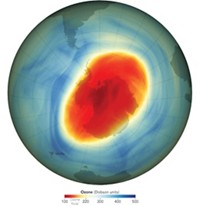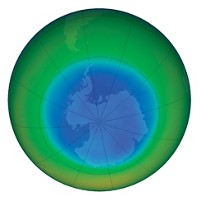Advertisement
Grab your lab coat. Let's get started
Welcome!
Welcome!
Create an account below to get 6 C&EN articles per month, receive newsletters and more - all free.
It seems this is your first time logging in online. Please enter the following information to continue.
As an ACS member you automatically get access to this site. All we need is few more details to create your reading experience.
Not you? Sign in with a different account.
Not you? Sign in with a different account.
ERROR 1
ERROR 1
ERROR 2
ERROR 2
ERROR 2
ERROR 2
ERROR 2
Password and Confirm password must match.
If you have an ACS member number, please enter it here so we can link this account to your membership. (optional)
ERROR 2
ACS values your privacy. By submitting your information, you are gaining access to C&EN and subscribing to our weekly newsletter. We use the information you provide to make your reading experience better, and we will never sell your data to third party members.
Environment
More Ozone-Depleting Chlorofluorocarbons Detected In Atmosphere
Two compounds increasing in air and their origins should be investigated, researchers say
by Jyllian Kemsley
March 17, 2014
| A version of this story appeared in
Volume 92, Issue 11
Once widely used as refrigerants, propellants, and solvents, chlorofluorocarbons (CFCs) released to the atmosphere cause the destruction of Earth’s protective ozone layer. Their prevalence has declined in the past two decades because of an international treaty to control their use. Nevertheless, researchers recently detected three CFCs and one hydrochlorofluorocarbon not previously observed in the atmosphere, reports an international group led by Johannes C. Laube of the University of East Anglia, in England (Nat. Geosci. 2014, DOI: 10.1038/ngeo2109). The compounds turned up in air and snow. Concentrations of two of the species—CFCl2CFCl2 and CF2ClCCl3—increased in the atmosphere from the 1970s to the mid-1990s, then began to slowly decrease, similar to previously tracked CFCs controlled by the treaty. Concentrations of two others, however—CF3CCl3 and CF3CH2Cl—continued to increase through 2012, when the study’s sampling ended. No data are available to pinpoint the origins of the still-increasing compounds, which are intermediates in refrigerant production; CF3CCl3 is also an insecticide feedstock. Although emissions of the compounds are far less than peak CFC emissions in the 1980s, their increases suggest that their sources should be investigated, Laube and colleagues say.




Join the conversation
Contact the reporter
Submit a Letter to the Editor for publication
Engage with us on Twitter